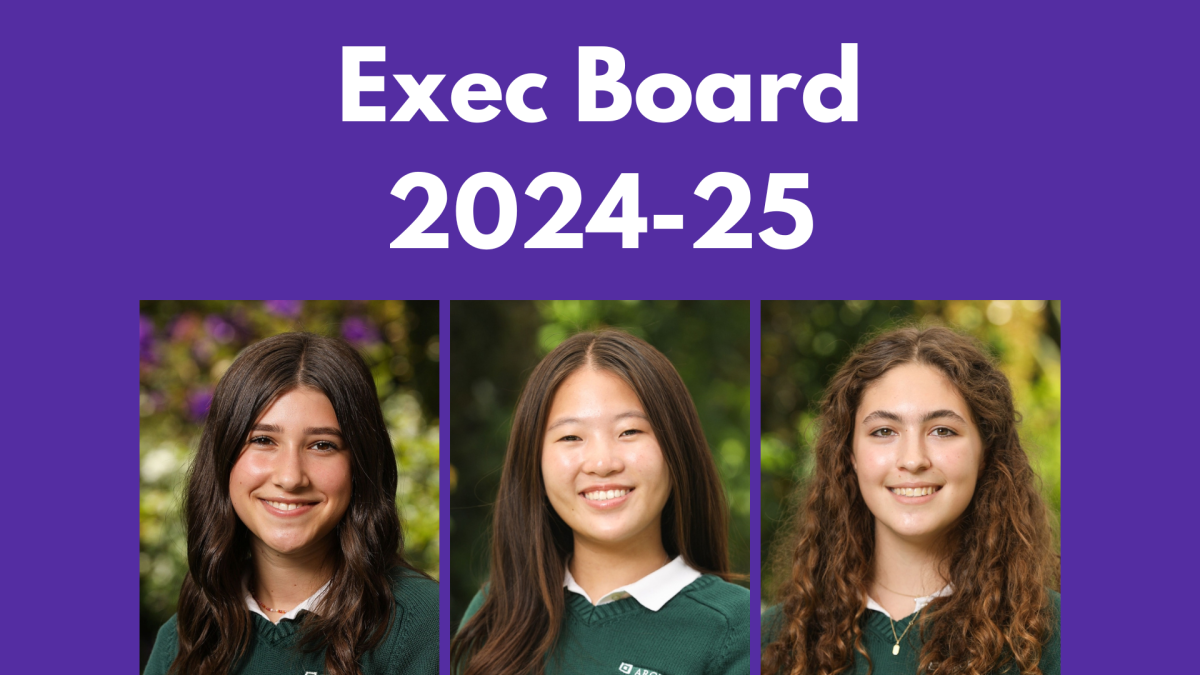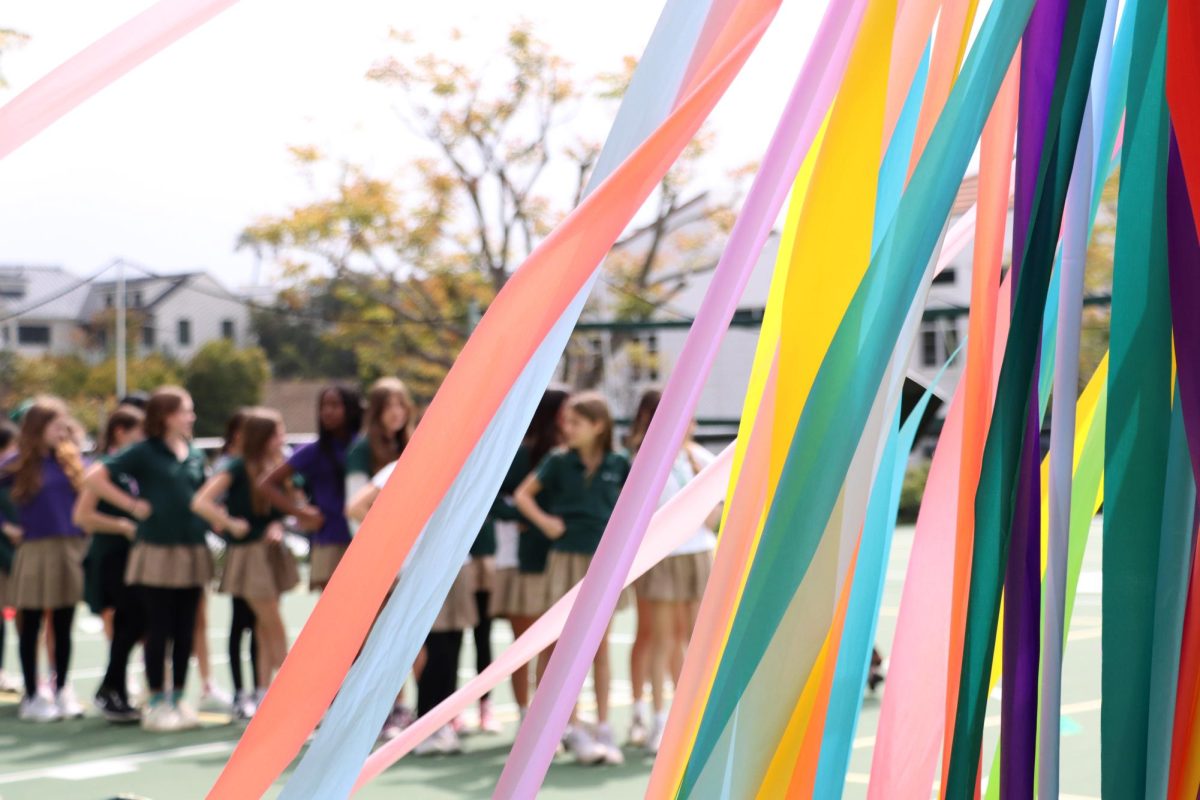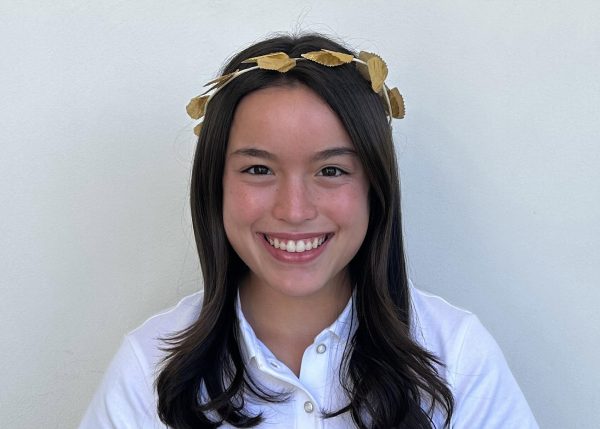The focus of this year’s National Scholastic Journalism Week is “Here to Stay,” and 2024 also marks the Journalism Education Association’s 100th anniversary. The theme for Monday, Feb. 19, is the First Amendment, encouraging students to recall landmark court cases that defined First Amendment rights and to understand how the First Amendment affects their daily experience as student journalists.
In addition to First Amendment protections, California Education Code 48907 “provides student journalists attending California public high schools, including charter schools, with added protection against administrative censorship.”
The Paly Voice is Palo Alto High School‘s student newspaper, and their content responsibility policy aligns with this code. Co-Editor-in-Chief Sophia Yang (’24) described the importance of having protections against censorship, especially when reporting on sensitive subjects.
“It’s really important because covering sometimes sensitive topics just has really helped us practice talking with people in power about more uncomfortable subjects,” Yang said. “It really does allow students to kind of hold their school and the surrounding community accountable if they were to write about topics like that, and without repercussions or censorship.”
According to Yang, Palo Alto High School’s beginning journalism class includes teaching about student journalists’ rights, such as press freedom cases like Tinker v. Des Moines. Co-Editor-in-Chief of The Paly Voice Anna Feng (’24) added that Paly students also learn about the First Amendment in their sophomore year U.S. government class.
Feng highlighted how reporting on sensitive topics, in particular, has strengthened her firsthand understanding of the First Amendment. She referenced a sexual harassment Title IX investigation that her school’s news and features publication, “Verde,” completed as an example of this significance.
“I feel like First Amendment rights touches every aspect of our life, even if you don’t choose to pursue journalism in the future,” Feng said. “I think it’s a pretty unique thing, and not many other students get to say that they learned about First Amendment rights outside the classroom.”
According to the Student Press Law Center, “because private schools are not government institutions, they are not subject to the First Amendment in the same way public schools are. California is one of the only states to extend free expression protections to students at private and independent schools.”
For example, Leonard Law “prohibits punishing students at private secondary schools for expression made on- or off-campus that would be protected by the First Amendment if made off-campus.” However, “the law does allow your school to place ‘reasonable’ limits on when, where and how you can make your expression.”
Individual schools can also create written free expression policies that expand student journalists’ press rights more than the law requires. For example, aligned with Archer’s mission to empower girls’ voices, The Oracle has complete press freedom.
Outside of journalism classes, Archer’s history curriculum covers First Amendment rights, including studying the Bill of Rights in eighth and 11th grade and the media’s role in democracy in ninth grade. In The Voice of Democracy, a senior seminar, Features Editor Maia Alvarez (’24) and senior reporter Nina Sperling (’24) presented on the Supreme Court’s impact on the First Amendment. Alvarez reflected on how her journalism experience enhanced her understanding of the First Amendment and vice versa.
“Being able to notice — not only as a journalist, but just as a person who reads news, as a person that consumes media — to know what your rights are, and then, in turn, know how to advocate for those is really important,” Alvarez said. “I think that’s what this project helped us do and help teach the rest of our classmates.”
Spylgass is The Westridge School for Girls’ student newspaper, and their editorial policies reference Ed Code 48907 and Leonard Law. Editor-in-Chief Eliza Walpert (’24) and Managing Editor Sophene Avedissian (’25) said their publication does not have complete independence from their school’s administration, but this has not interfered with their reporting. Editor and Social Media Manager Ella Bilu (’25) said the only restriction that impacts their operations is that they cannot write students’ last names — an ability they are currently asking for — which she said is an overall school policy for students’ protection.
“Our adviser kind of runs the stories by administration after we have filled out our pitch list, and usually, they don’t have any sorts of problems — we write articles that criticize the school and administration, and we see change come from those articles,” Walpert said. “There’s no really restrictions on what we can write as long as we’re reporting accurately.”
Similarly to Feng, Avedissian said learning about the First Amendment in the journalism classroom — in addition to their U.S. history class — helps her and other reporters feel more familiar with First Amendment rights than many of their peers.
“As a student journalist, you still have the same role and position as a professional journalist,” Avedissian said. “Even though we’re at a private school where what we do is not completely not associated with the administration, it’s still really important to know what rights you do have because things are bound to come up as you’re writing a story, and I think having that proper education beforehand is just really important and crucial as a journalist.”
Additional reporting by Staff Reporter Shae Killam (’27) and Senior Reporter Oona Seppala (’26).









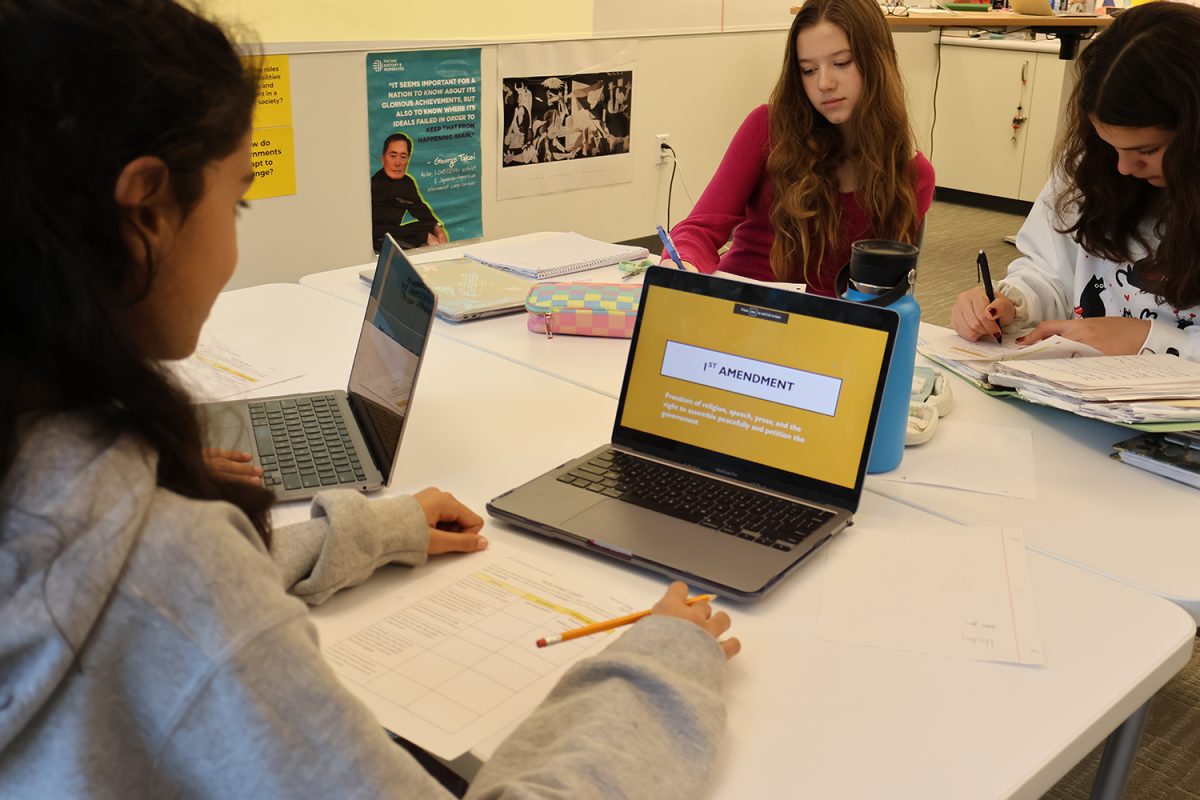
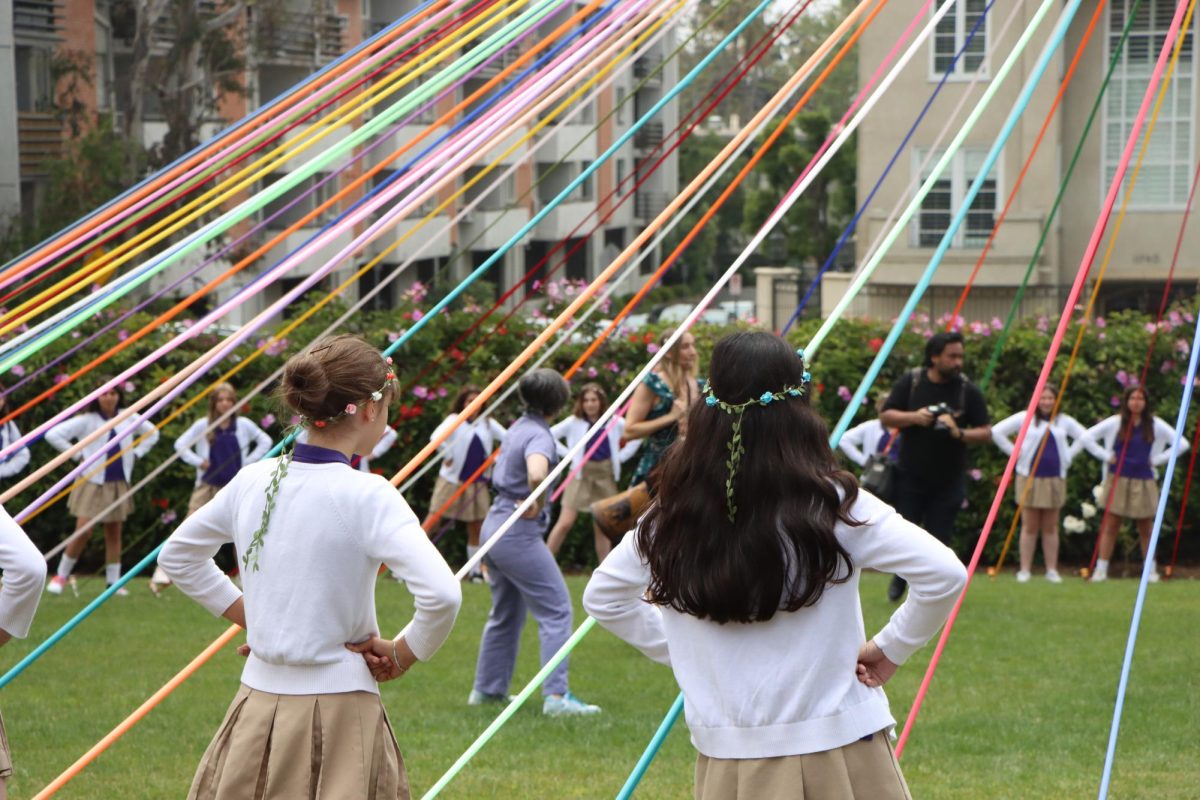

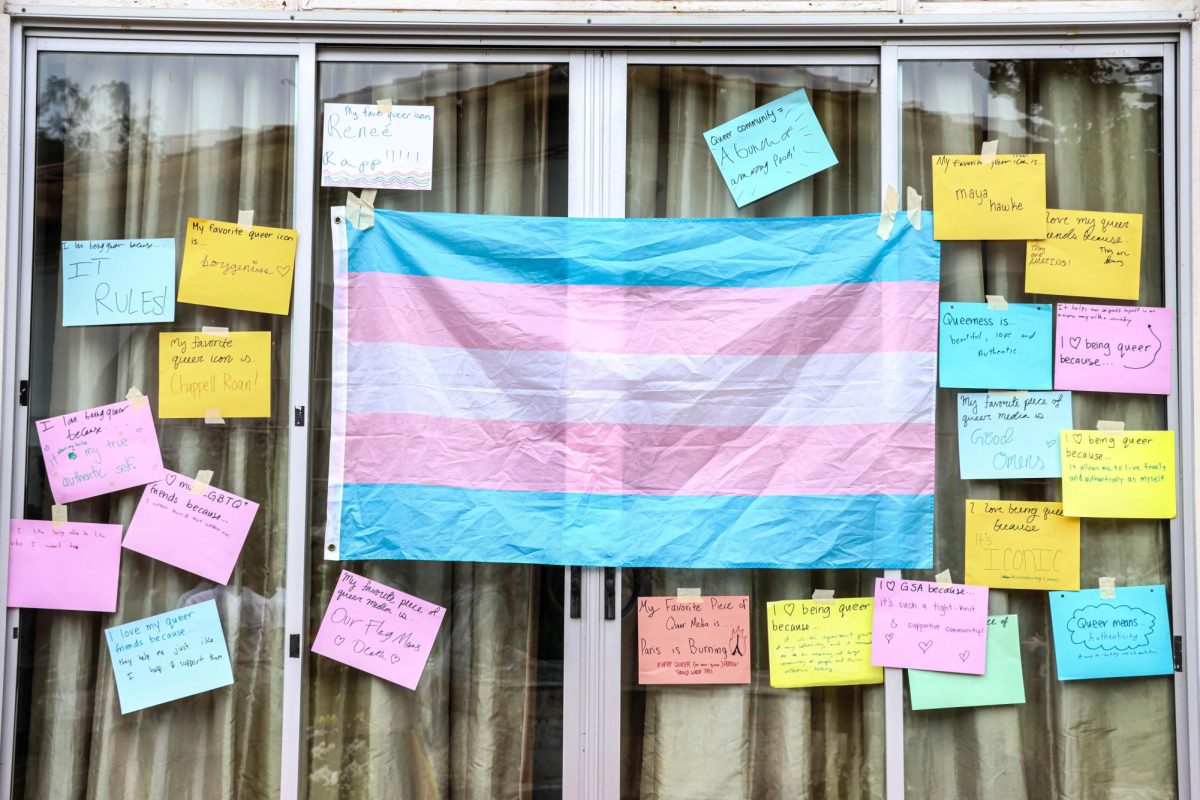
![Seniors laugh as they shoot water across the courtyard, during the annual fountain jump. I [the fountain jump] is really the culmination of your Archer experience, senior Ella Gray said. Especially because youre always around the fountain, at some point, and now you get to be in it.](https://archeroracle.org/wp-content/uploads/2024/05/MG_0817-1-1200x800.jpg)
